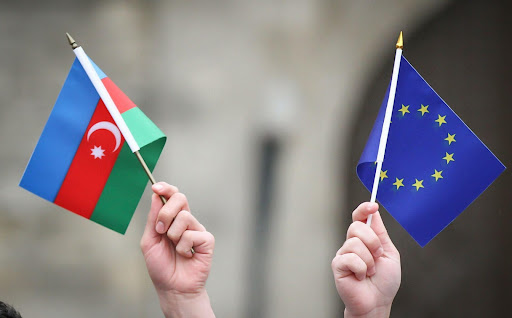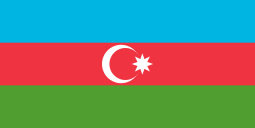
Semi-confidential discussions between Baku and Brussels
What are the thoughts on the unsigned agreement with Azerbaijan in the European Union?
22 November 2023
(The third article in the series "Why is the Remaining 10% of the Road to Europe Unpassable?)
The European Union has been in discussions with Baku for over five years regarding the Comprehensive Cooperation Agreement project with Azerbaijan, but has not provided detailed information about it. It has been generally noted in response to journalists' inquiries that the public will not be informed about the nature of the Agreement until it is signed. It is unclear whether this decision was made at the request of the Azerbaijani side, or whether Brussels considers it more beneficial to conduct negotiations out of the public eye. It should be noted that periodic information has been provided to the media about integration discussions with other countries in the region.
In the previous two parts of the study, detailed information was provided about the history of European Union-Azerbaijan relations, signed contracts, memoranda, and statements. Additionally, the positions of various experts and members of parliament on the reasons why the Comprehensive Cooperation Agreement with Azerbaijan has not yet been signed have been published.
(The beginning of the study can be found at these links)
(Araşdırmanın əvvəli bu linklərdədir)
(https://old.pressklub.az/ekskluziv/avropaya-geden-yolun-qaranliq-parcasi/)
(https://old.pressklub.az/ekskluziv/boyuk-sazis-tehluke-yoxsa-qazanc-arasdirma-ii-yazi/)
In the now-presented final third part of the study, official positions from both sides have been included, and the reasons why the "Common Aviation Area Agreement", which citizens have been eagerly awaiting for 10 years, has not been signed, have been investigated.
Aykhan Hajiyev, the spokesperson for the Ministry of Foreign Affairs of Azerbaijan, stated that there is no new development regarding the Agreement project discussed with the European Union. "If there is any new development, the public will be informed," he added, and this statement was deemed sufficient.
The European Union's representation in Baku announced that they would respond to our inquiry in the coming days. It took more than a month to receive this response from the representation. We heard unofficial talks that currently, the European Union is engaged in the peace process between Azerbaijan and Armenia, and thus, they are cautious about bringing other issues to the agenda, fearing it might negatively impact the process.
Toivo Klaar, the European Union's representative for the South Caucasus, stated that the EU Delegation in Baku, which is responsible for bilateral relations between Azerbaijan and the EU, should answer questions about this matter. He promised to address the questions to the ambassador in Baku.
Another agreement under discussion with no end in sight and expensive flights to Europe
Ten years and ten months ago – on January 25, 2013, in Baku, negotiations began between Azerbaijan and the European Union (EU) on the "Common Aviation Area Agreement.
The European Union considers that this Agreement is an important step forward in strengthening bilateral relations and will also positively impact political and economic relations, and strengthen ties between peoples.
The Agreement aims to increase passenger transport between Azerbaijan and the European Union, to enhance competition in this field, and to liberalize the conditions. It is noted that this agreement has been signed by several countries in the region, including Armenia and Georgia.
In September of that year, a statement from the European Commission noted that the institution proposed Azerbaijan sign the Agreement by 2015.
The EU believes that the agreement will allow Azerbaijan to be a part of the EU's single airspace. This would mean simplifying a number of procedures related to transportation, and providing the local industry with opportunities to enter new markets.
The second phase of negotiations between Azerbaijan and the European Union took place not more, not less, but five years later – on July 4-5, 2018, in Brussels. At the meeting, both sides expressed their intentions to sign the agreement.
During the negotiations, the objections, suggestions, and desires of the Azerbaijani side were discussed, and explanations were given for a number of unclear issues. As a result of the meeting, a protocol was signed.
It was decided that the next, third stage of the negotiations would take place in the city of Baku. However, more than five years have passed since that date, and the discussions have not yet taken place...
As a result, Azerbaijan lost the opportunity to be a part of the European airspace, which has created additional problems for citizens and businesses. Particularly, the Azerbaijan Airlines State Concern (AZAL), whose shares are held by the state, dictates prices as the sole monopolist. International airlines that have the right to fly to Azerbaijan and carry passengers are also obliged to comply with the rules set by AZAL.
Since March 24, 2020, due to the coronavirus pandemic, Azerbaijan's land borders remain closed. The government periodically extends the duration of the closure. Citizens and foreigners entering or leaving the country are only allowed to use air travel. The prices set by Azerbaijan Airlines (AZAL) for air tickets are quite expensive.
We felt the absurdity of this expensiveness while flying to Brussels, the political capital of Europe, as part of our project. A round-trip economy ticket from Baku to Brussels cost $719. In contrast, a citizen of Georgia can comfortably make this flight for only 150 euros or even cheaper. This is because in aviation transport, they use local and numerous foreign airlines, as the state has ensured conditions for their competition.
The main reason for the expensive flight to Brussels is to explore the positions related to the Comprehensive Agreement, which has been under discussion for over five years between the European Union and Azerbaijan but still has an uncertain fate.

While in Brussels, we successfully obtained a statement from Joséphine Moreau, the press liaison for the Eastern Neighbourhood, including Azerbaijan, at the Press Office of the European Commission. Ms. Moreau presented the following response from Peter Stano, the lead spokesperson for foreign affairs and security policy at the European Commission:
"Negotiations for a new Comprehensive Agreement with Azerbaijan indeed began in 2017. Although most areas of the negotiations are confidential, there are still unresolved issues, particularly in the field of trade that need to be addressed. The European Union remains committed to the negotiations for the new agreement.”

Estonia's former Foreign Minister, and the leader of the Group of the Progressive Alliance of Socialists and Democrats in the European Parliament, Marina Kaljurand, spoke rather sternly about Azerbaijan. Ms. Kaljurand stated that Azerbaijan needs to look in the mirror and draw the appropriate conclusions. She spoke about issues that are already in the past - the war in Nagorno-Karabakh, the situation on the Lachin road, the rights of the Armenian residents of Nagorno-Karabakh, and added: 'The resolution of issues such as political pressures against civil society and human rights defenders, the arrest of political opposition leaders, etc., is a fundamental condition for the development of EU-Azerbaijan relations,' she noted.
The representative of the European Parliament emphasizes that Azerbaijan will not see an improvement in relations unless it changes its policies both domestically and internationally. "The European Union has been and will continue to be a supporter of international law and the values it embodies," added Marina Kaljurand.
It should be noted that the European Parliament has adopted several resolutions at various times regarding the internal situation in Azerbaijan and the Nagorno-Karabakh conflict. These documents harshly criticize the official position of Baku and even contain calls for the European Commission to impose sanctions.
Unlike the European Parliament, the European Commission demonstrates a more cautious approach towards relations with Azerbaijan. Currently, relations between the two sides are steadily developing in various areas, especially in the field of energy trade. European officials refer to Azerbaijan as a reliable partner.
Elçin Rüstəmov













